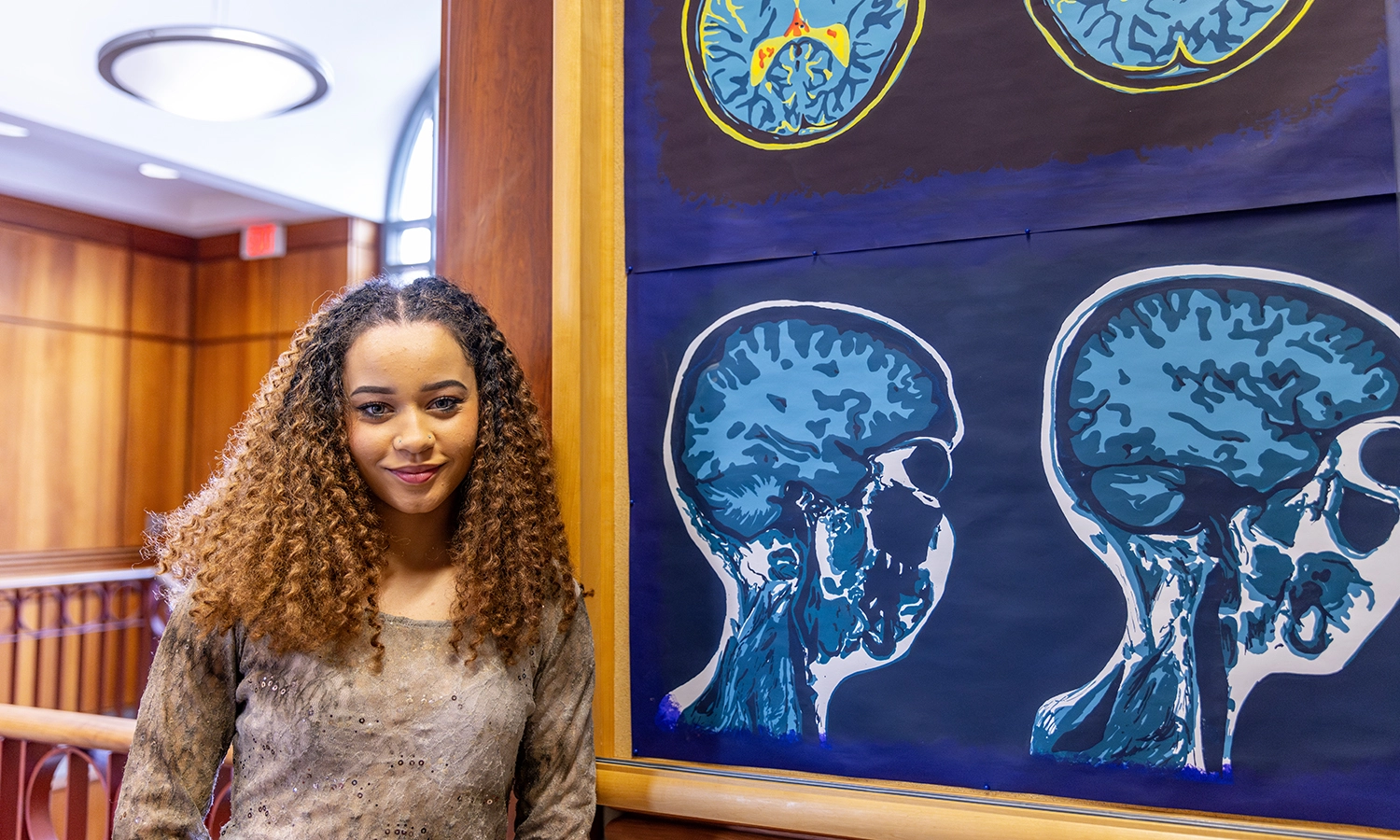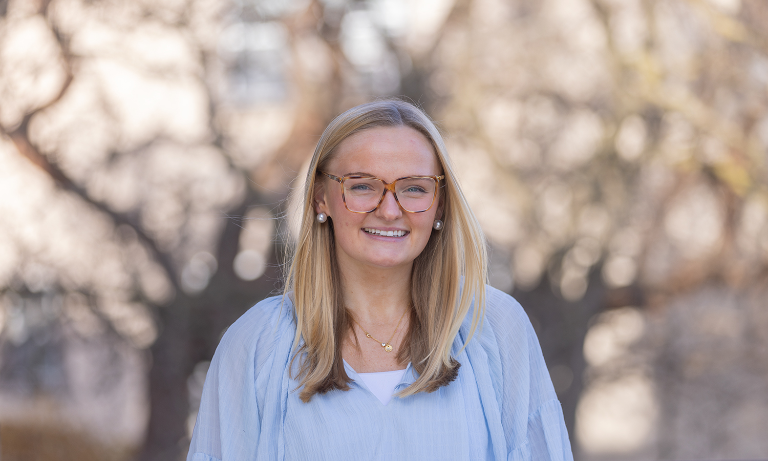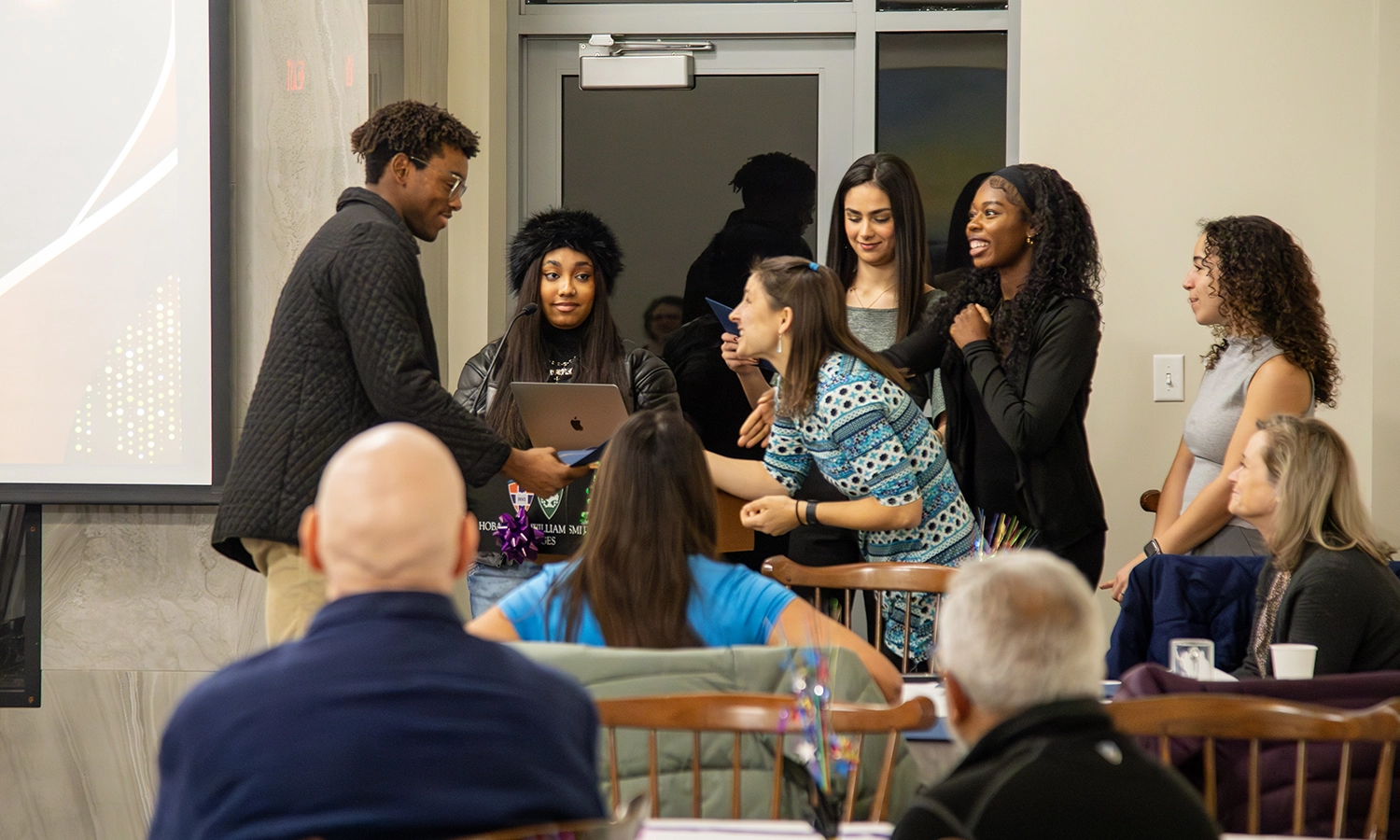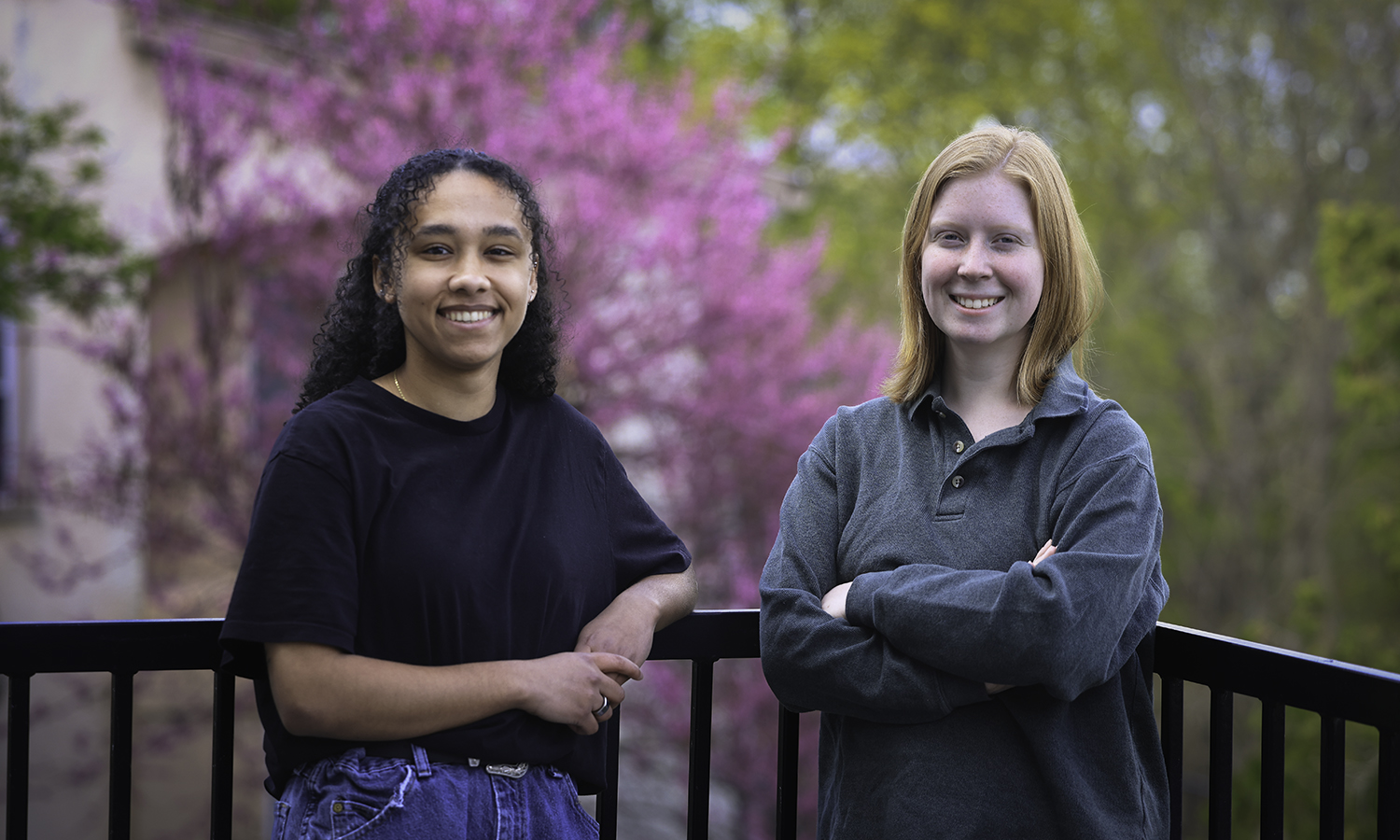
HWS News
9 May 2023 • STEM Physics Competition Explores Teleportation, Uranium
Students presented their research during the Physics Department’s annual oratory competition, established to encourage and further the art of physics discourse and to memorialize former HWS President Albert Holland.
For the first time in the 22-year history of the Albert Holland Physics Lecture Competition, two winners have been selected, Amina Assefaw ’26 and Willow Munn-Oberg ’23.
Nine students competed in the annual contest, judged by Associate Professor of Chemistry Kristin Slade, Associate Professor of English Rob Carson and Associate Professor of Physics Steve Penn, with Professor of Physics Ted Allen serving as master of ceremonies.
During the annual competition, each student presents a 15-minute lecture in which some significant principle or application of physics is derived and explained; the lectures are judged on the rhetorical skill and effectiveness with which they are delivered.
A first-year student from Filderstadt, Germany, Assefaw discussed mass spectrometry in the context of the Manhattan Project and its role in building the first nuclear bomb. Her presentation, “Mass Does Matter,” detailed the challenges Manhattan Project scientists faced in separating various uranium isotopes. “When shooting a uranium beam into a magnetic field, the different isotopes will move on slightly different trajectories because they do not have the same mass,” she notes. “Basically, I explained the workings and the theory behind a mass spectrometer and then highlighted how, without that principle of isotope separation based on mass differences, the Manhattan project would not have gone the way it did.”
Munn-Oberg, who also won the Holland Prize in 2021, presented a talk titled “Quantum Teleportation.” A physics major in the joint engineering program with The Thayer School of Engineering at Dartmouth College, she presented, “Quantum Teleportation,” discussing “the phenomenon of quantum entanglement” and whether the sci-fi promises of instantaneous communication across lightyears is realistic. Munn-Ober, who hails from Newhall, Calif., debunked this kind of “faster-than-light communication” while examining “what [it] might mean for humanity’s eventual expansion to the stars.”
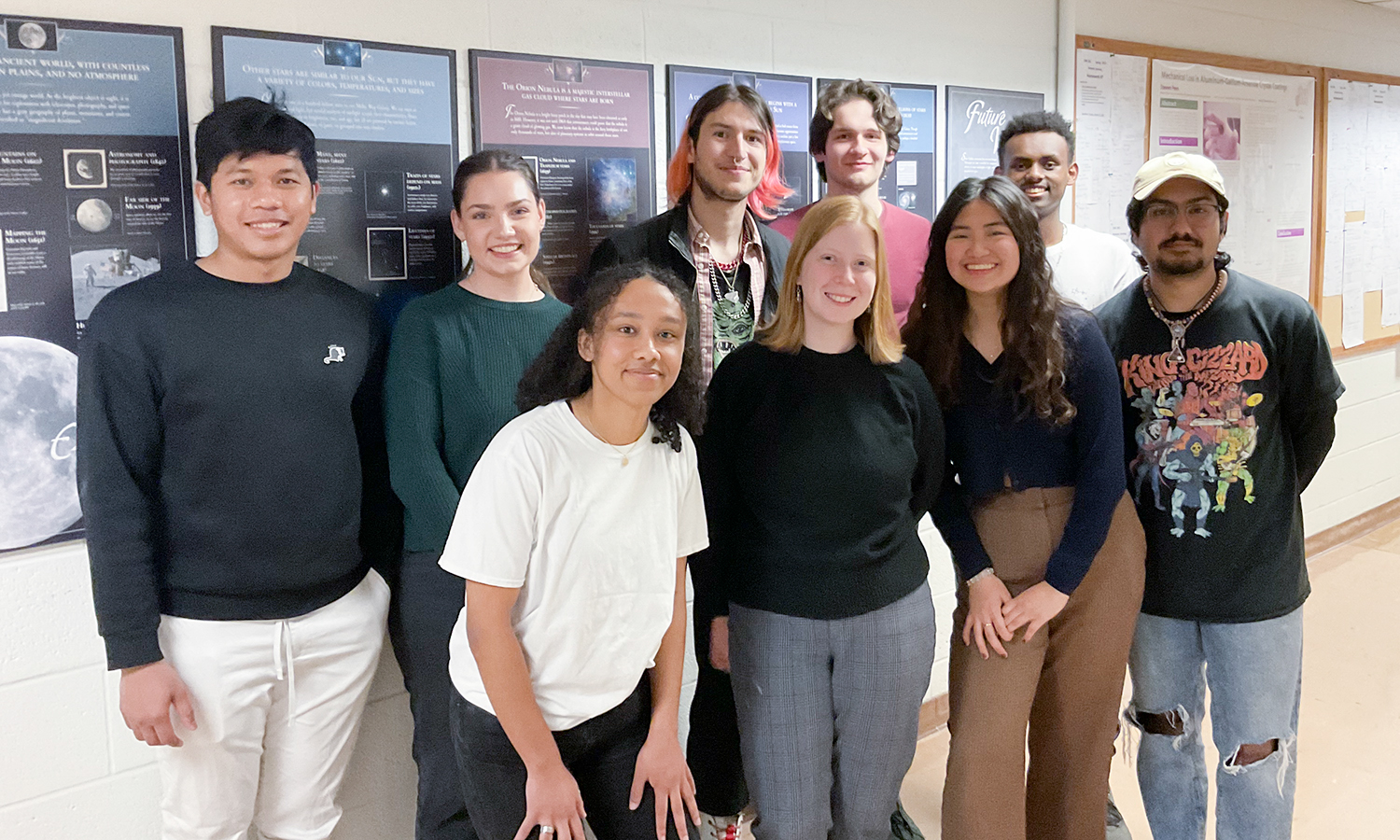
There were seven other participants: Misty Chien ’23, a physics major from New York, N.Y., presented “Kepler’s Laws of Planetary Motion”; M. Coronel ’23, a double major in physics and philosophy from Queens, N.Y., offered “Simultaneity and Special Relativity”; Alexandra Davidson ’24, a biochemistry major from Garden City, N.Y., discussed “Capacitors and Cell Membranes”; Anupam Dhungana ’23, a physics major from Kathmandu, Nepal, presented “Planck Length: How Small Can We Go?”; Biruk Nardos ’25, a physics and computer science double major from Addis Ababa, Ethiopia, offered “Purrfectly Balanced: Understanding the Physics of Cats’ Righting Reflex”; James Sarver ’24, a physics and geoscience double major from Ligonier, Penn., presented “Length Contraction: Relativity Comes Up Short!”; and Vuthy Vey ’24, a computer science major from Kampong Thom, Cambodia, discussed “Navigating the World with GPS.”
The competition and prize were conceived and endowed by the late Professor Emeritus of Physics Allan M. Russell P’81, P’86 when he retired from the Physics Department after three decades of teaching. The purpose of the competition is to encourage and further the art of physics discourse and to memorialize former President Holland.
Albert Edward (Bert) Holland, B.A., M.A., LL.D. (1912-1984) served as President of Hobart and William Smith Colleges from 1966 to 1968. He was known for his vision, honesty and integrity, and his remarkable skills in public presentation. He received a letter of commendation from the U.S. Government for employing those skills in helping to save those imprisoned with him in a Japanese prison camp in the Philippines during World War II. As president of the Colleges, he was responsible for the establishment of Geneva Scholars Associates, which provides scholarship aid to students from the Geneva area.

